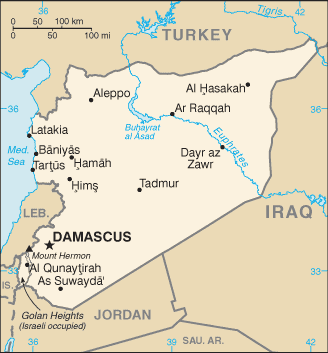When it comes to the US war in Syria, the Pentagon and the CIA don’t agree on much, and indeed don’t even seem to be able to settle among themselves who they’re actually fighting. The Pentagon sees the war as against ISIS, while the CIA sees the war as chiefly one to impose regime change against the Assad government.
 The administration has always been more than a little vague on that point, of course, so it is perhaps unsurprising that this is the case. Still, the CIA and Pentagon are both heavily involved in their respective wars, and eagerly undercutting one another in advancement of their respective goals.
The administration has always been more than a little vague on that point, of course, so it is perhaps unsurprising that this is the case. Still, the CIA and Pentagon are both heavily involved in their respective wars, and eagerly undercutting one another in advancement of their respective goals.
Back in December, Sy Hersh reported that the Joint Chiefs had been sending intelligence to several nations, including Germany, on the condition that it be forwarded to Syria, with an eye toward undermining a CIA arms smuggling campaign that they described as “co-opted” by Turkey, and which saw the US arms for “moderates” going to al-Qaeda and ISIS.
This week, reports from Nancy Youssef quoted CIA officials accusing the Pentagon of mimicking “Russian propaganda,” and who blasted the Pentagon for focusing on fighting ISIS and for being reluctant to back rebels embedded with al-Qaeda’s Nusra Front.
The Youssef article quoted one US intelligence official explicitly saying that imposing regime change is “a necessary precondition” to fighting ISIS, because the civil war the US has been backing for years has made Syria “a failed state,” and “you can’t deal with ISIS if you have a failed state.”
Problematic though Syria’s current weakness is, the CIA “plan,” such as it is, appears to be to follow the exact same strategy that worked so disastrously in Libya, imposing regime change militarily, and just assuming that eventually some more pro-US state is going to appear and then be backed for a whole separate war against.


